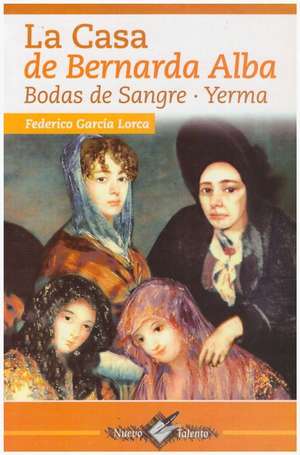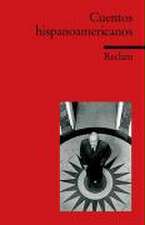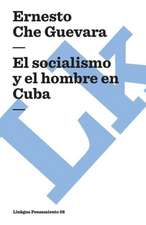La Casa de Bernarda Alba
Autor Federico Garcia Lorcaes Limba Spaniolă Paperback – 2 feb 2010
| Toate formatele și edițiile | Preț | Express |
|---|---|---|
| Paperback (9) | 28.53 lei 18-23 zile | +2.64 lei 6-12 zile |
| Reclam Philipp Jun. – oct 2004 | 28.53 lei 18-23 zile | +2.64 lei 6-12 zile |
| – | 39.31 lei 3-5 săpt. | |
| – | 42.27 lei 3-5 săpt. | |
| CreateSpace Independent Publishing Platform – 30 noi 2015 | 53.57 lei 3-5 săpt. | |
| Ediciones Catedra S.A. – 31 mai 2005 | 93.67 lei 18-23 zile | +8.12 lei 6-12 zile |
| Hackett Publishing Company – 30 apr 2005 | 110.69 lei 3-5 săpt. | |
| – | 46.71 lei 6-8 săpt. | |
| – | 46.71 lei 6-8 săpt. | |
| Stockcero – 31 ian 2008 | 136.33 lei 6-8 săpt. |
Preț: 69.02 lei
Nou
Puncte Express: 104
Preț estimativ în valută:
13.21€ • 13.82$ • 10.97£
13.21€ • 13.82$ • 10.97£
Carte indisponibilă temporar
Doresc să fiu notificat când acest titlu va fi disponibil:
Se trimite...
Preluare comenzi: 021 569.72.76
Specificații
ISBN-13: 9789706271259
ISBN-10: 9706271252
Pagini: 166
Dimensiuni: 139 x 205 x 12 mm
Greutate: 0.17 kg
Editura: EPOCA
ISBN-10: 9706271252
Pagini: 166
Dimensiuni: 139 x 205 x 12 mm
Greutate: 0.17 kg
Editura: EPOCA





